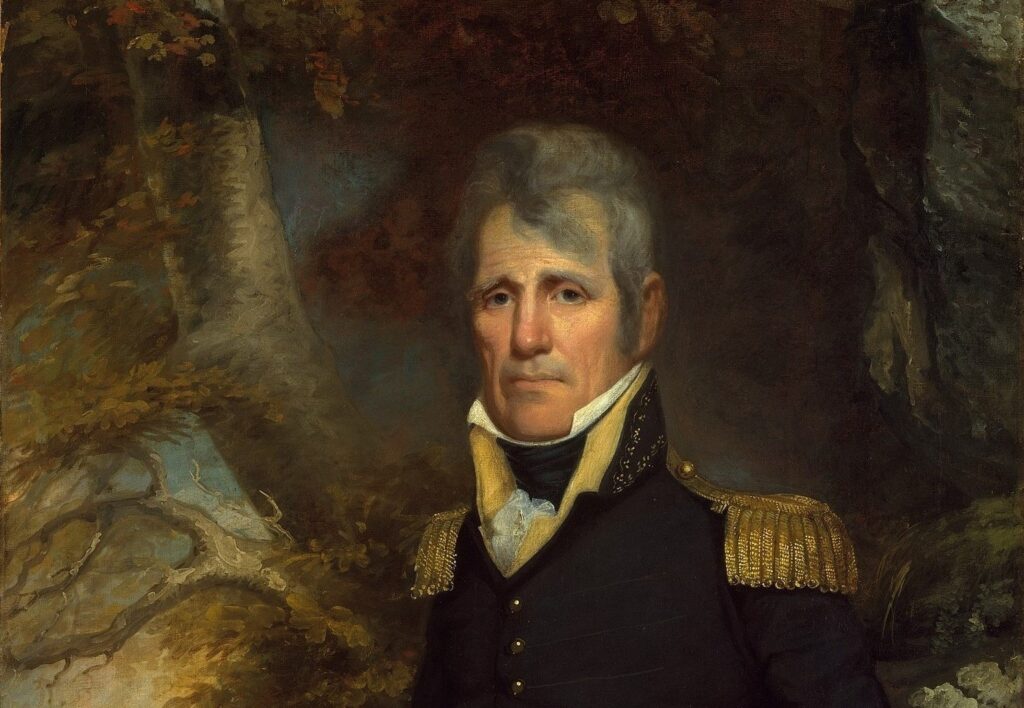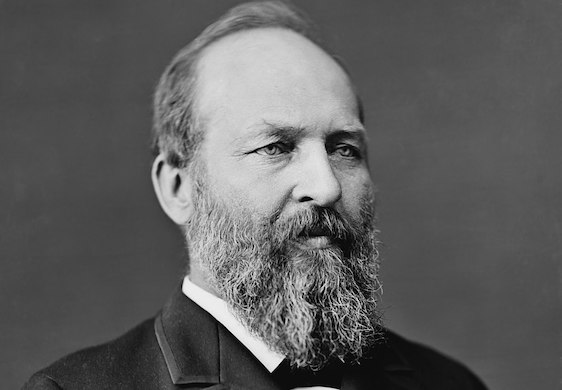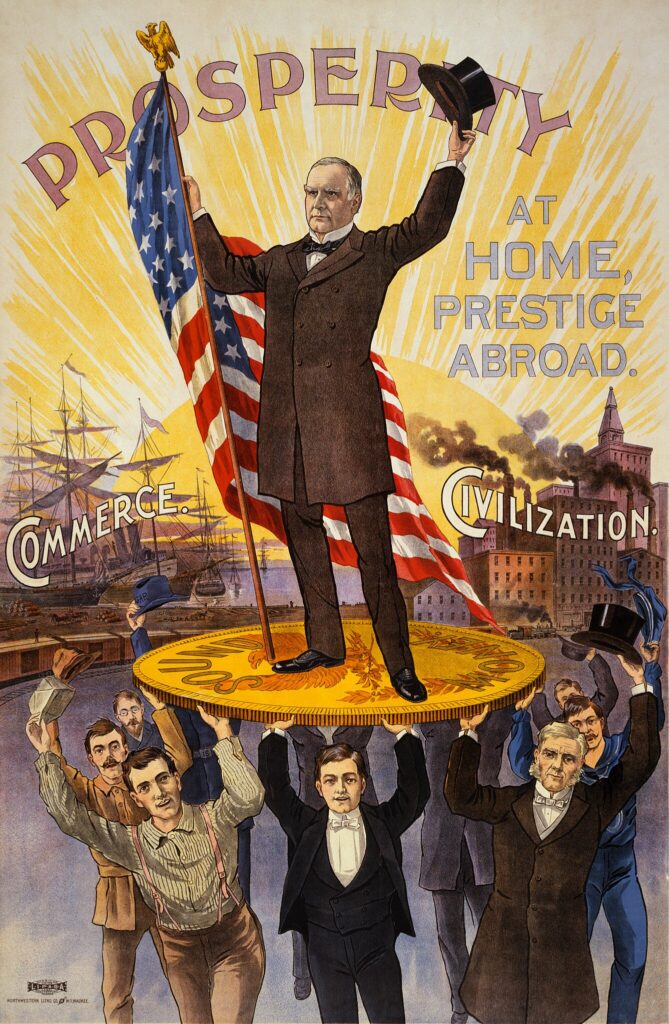Gilded Age Presidents, Trump’s Guides on Tariffs, Sold the Levies With a Smile
McKinley, Garfield point the way for the 47th president.

President Trump foresees “a period of transition” before his tariffs replicate the Gilded Age economic boom. With opponents warning about that “pain,” he can look to predecessors of that era for guidance on America’s nerves.
Tariffs, Mr. Trump told reporters aboard Air Force One on Sunday, “are going to be the greatest thing we’ve ever done as a country. It’s going to make our nation rich again.” He said they’ll “take in hundreds of millions of dollars” and Americans won’t “know where to spend all that money.”
Optimism is important for a president, but Mr. Trump need only look back to President Biden to the danger of being overconfident. His administration dismissed inflation concerns and paid the price when inflation erupted.
Mr. Trump was asked, on Fox News Channel’s “Sunday Morning Futures With Maria Bartiromo,” if he expected a recession. “I hate to predict things like that,” he said. “There is a period of transition because what we’re doing is very big.”
The remarks spooked Wall Street. On Monday, the Dow and S&P 500 fell 2.1 and 2.7 percent respectively. Nasdaq dropped 4 percent. The markets like calm waters, while Mr. Trump prefers turbulence.

President Jackson, whose portrait Mr. Trump hung in the Oval Office, felt the same way. “I was born for the storm,” he said, “and a calm does not suit me.” Jackson, belligerent, made the Second Bank of the United States his White Whale.
Although Jackson won the Bank War, his policies caused an economic depression. His great achievement, eliminating the national debt — the last time it was paid off — was little comfort to Americans.
The presidents who presided over the budget boom of the Gilded Age used a softer touch. “I am a poor hater,” President Garfield once said. A preacher before winning the White House in 1880, he was incapable of holding either a grudge or Jacksonian rage.
Garfield’s opponent, General Winfield Scott Hancock, ran on the Democratic motto, “Tariff for Revenue Only.” A Harper’s Weekly cartoon mocked his lack of experience in elective office. “Who is Tariff,” it depicted him asking, “and why is he for revenue only?”

Like Mr. Trump, Garfield saw tariffs as benefiting more than America’s bottom line. “We provide for the common defense,” he wrote, “and promote the general welfare of the nation by a tariff that protects its laborers.”
Much of the press is reporting on Mr. Trump’s “trade war” absent such counterarguments, as if he imposed them in a Jackson style fit of pique. On “The Joe Rogan Experience” in October, Mr. Trump did a better job laying out the promise of tariffs.
In the Gilded Age, Mr. Trump said, America “had so much money” that “we didn’t know what to do” with it, and Congress set up a commission to deal with the surplus. “Our country,” he said, “was the richest, relatively, in the 1880s and 1890s.”
Mr. Trump called President McKinley, elected in 1896 and 1900, “the Tariff King” and described his policy. “We will not allow the enemy to come in,” Mr. Trump said, “and take our jobs and take our factories and take our workers and take our families unless they pay a big price — and the big price is tariffs.”

McKinley, like Garfield, was a Civil War officer who projected calm amid storms. In “President McKinley: Architect of the American Century,” Robert W. Merry recounts an anecdote demonstrating how the “kindly and sweet-tempered” president dealt with critics.
“During a downpour,” Mr. Merry wrote, McKinley spotted “a hostile reporter … getting soaked.” The president offered him a dry overcoat invited him into his carriage. “I guess you don’t know who I am,” the newsman replied.
“I have been,” the reporter said, “giving it to you every time you spoke,” and that night, he planned “to rip you to pieces if I can.” McKinley said he knew who the man was, “but you put on this coat and get inside so you can do a better job.”
Mr. Trump is pursuing tariffs with Jacksonian determination. When selling them to Americans, though, he’d be wiser to sail McKinley and Garfield’s course — the better to navigate the storm and deliver on his sunny promises of prosperity.

